A journey through Germany's enchanting black forest villages
Enchantment” is the word that hits travelers, whether seasoned or first-timers, as they begin their journey to the Black Forest.
Southwest Germany is renowned for its forested mountain range that captivates visitors and locals with its dense foliage. Its picturesque landscapes, rich cultural heritage and charming villages steeped in history and tradition have always charmed me. This region of the Black Forest is an enchanting place where, in my imagination, “Hansel and Gretel” by the Brothers Grimm actually lived and built their gingerbread house.
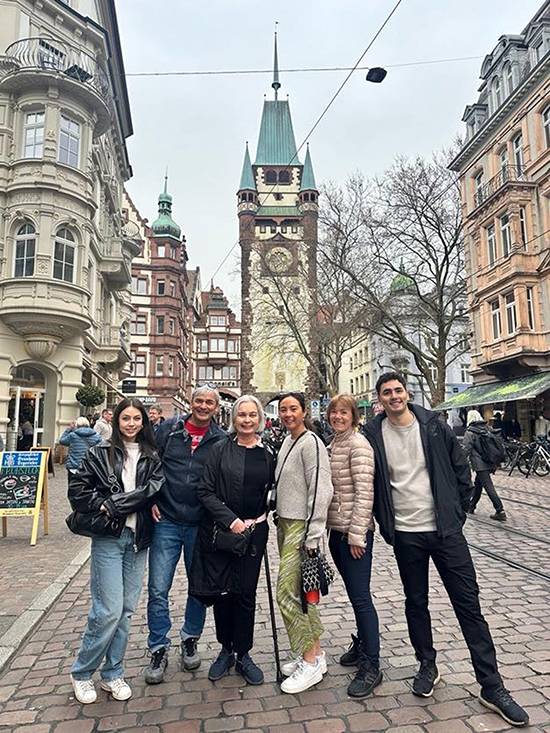
During my recent trip to Berlin, where my daughter Gabbi settled, we took an eight-hour speed train, the ICE, to visit my three German Moran cousins, their families, and Aunt Astrid, who for five years taught German at the American School (now International School Manila) over the Easter holidays. The destination was Glottertal, and our accommodation was at a gasthaus, 15 minutes from the train station in Freiburg. A gasthaus is a German-style inn in smaller rural towns with a bar and restaurant. Most locals will identify it as the reverse—a restaurant with rented rooms, because lunch and dinner are served to the public. Typically, a gasthaus is family-owned, where one meets three generations working together.
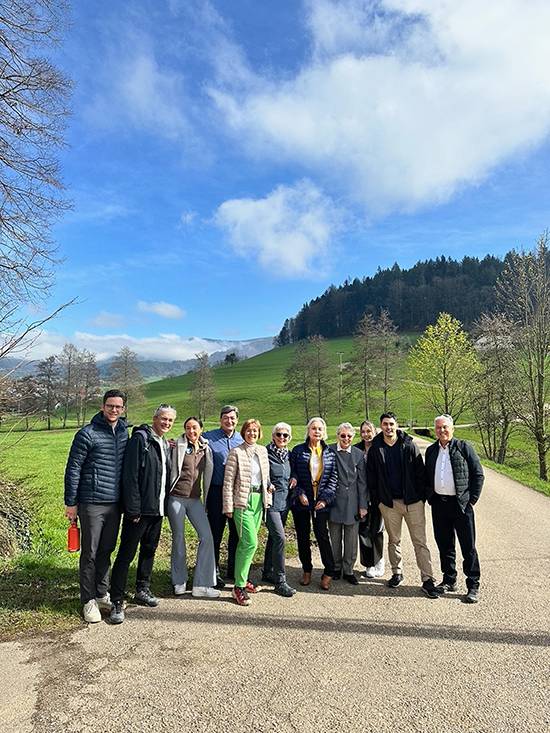
Our arrival at Gasthaus Zum Goldenen Engel was a thrilling adventure. We arrived late in the evening, and the inn was closed and dark, adding to the sense of mystery. The instructions, written in German, were to punch a code on the door lock to enter. As we did, the lights with sensors opened, revealing a cozy reception area with our keys waiting on the desk. Our taxi driver, who had been thoughtful in waiting for us, bid us farewell, and we were left to begin our Black Forest adventure using the gasthaus as our base.
Glottertal
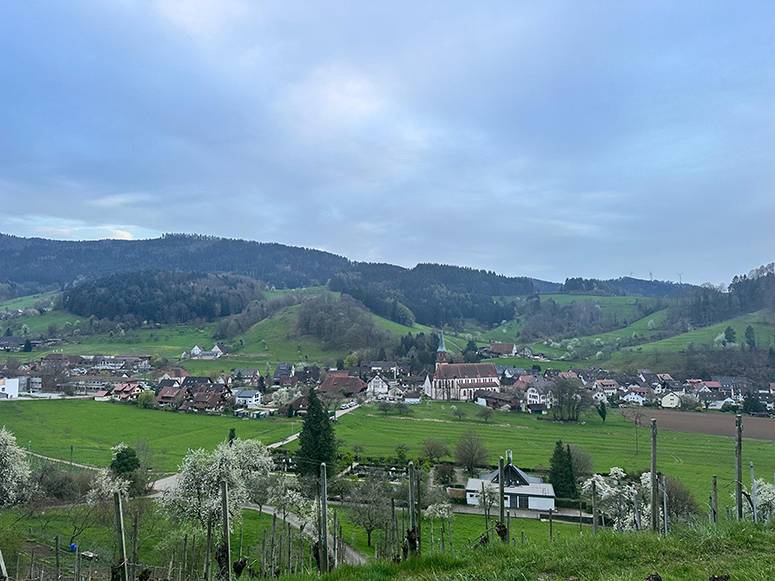
The ringing of the Catholic Church bells at 6 a.m. woke me up. It starts with a long ding-dong and then a short ringing every hour afterward, just like a cuckoo clock calling people to prayer. The tolling of the church bells takes place daily in every town in the Black Forest. I got up early to discover that I had a lovely view of a hidden gem surrounded by rolling hills and vineyards about to burst with leaves as winter transitioned to spring.

I took a leisurely walk through this idyllic village, which features traditional Black Forest houses and the tranquil Glotter River. In the afternoon, I excitedly awaited meeting my cousins, whom I last visited in 2010, Patrick and Katrin, and their children, Samuel and Caroline, Elena and Reinhard, and Eduardo. We drove to their mother’s home in Emmendingen.
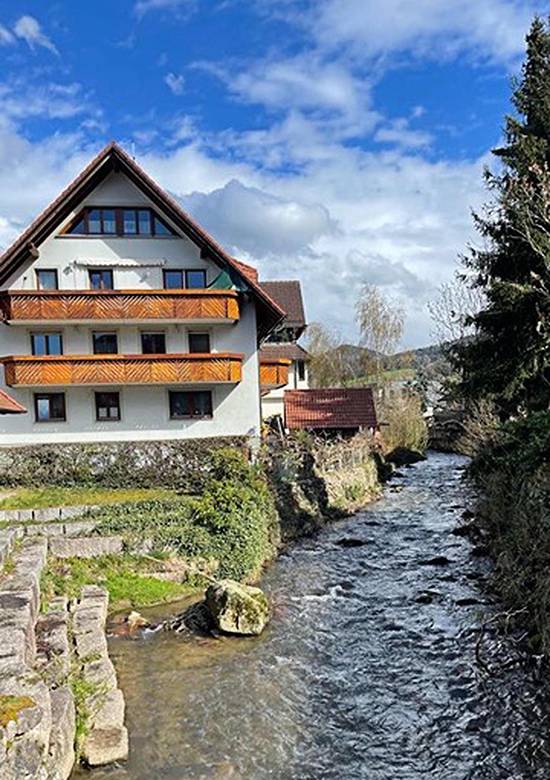
Emmendingen
This delightful town, I recalled from my first two visits in the 1980s and then in 2010, is a well-preserved historic old town where visitors can wander through cobblestone streets lined with centuries-old buildings. Its landmark is the impressive Emmendingen Castle that dominates Schlossplatz, a charming square.
Strasbourg
Situated near the border of Germany, Strasbourg combines the best of both cultures. Cuisine plays a vital role in the city’s identity, and it is renowned for its Alsatian specialties, such as foie gras.
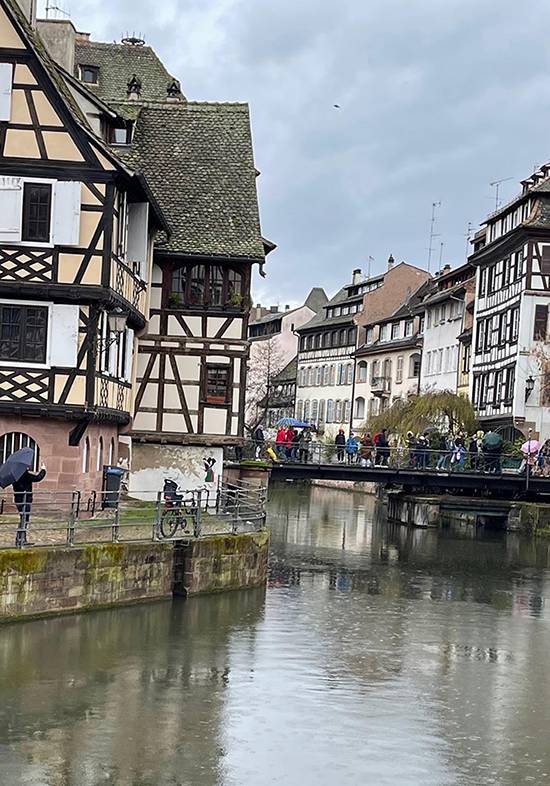
We walked through the old medieval town to one of its most iconic landmarks, the magnificent Cathedral of Our Lady of Strasbourg, a masterpiece of Gothic architecture. Since it was Good Friday, only Catholics who intended to attend the service were allowed entry. Hence, being Catholics, we attended Mass while admiring the Cathedral’s architectural beauty from our seats. A UNESCO World Heritage site, it was completed in 1439. It is renowned for its intricate stone carvings and stained-glass windows and houses a medieval astronomical clock. With a single spire towering 142 meters, it was the tallest building in the world for over 200 years. Its original plan was to have two spires, but the second spire still needed to be completed due to financial constraints.
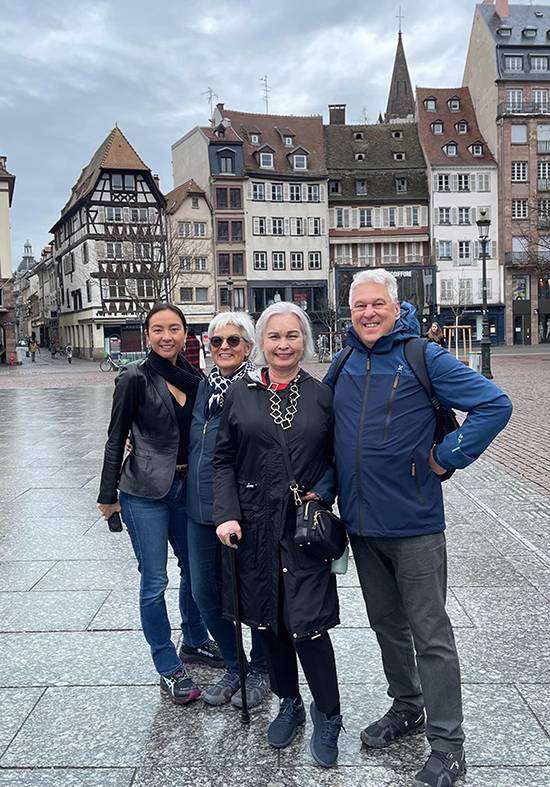
Another highlight is the historic district of La Petite, France, with its charming half-timbered houses, winding canals, and picturesque bridges. More than one day is needed to appreciate Strasbourg’s charm.
Freiburg Im Breisgau
Freiburg is the capital of the Black Forest region and the fourth-largest city in the state of Baden-Württemberg. It is one of the prettiest cities. Although it has historical medieval features, it is modern, green and committed to renewable energy. It is known as a university town contributing to Freiburg’s vibrant and diverse community.

One of the city’s most iconic landmarks is the Freiburg Minster, a Gothic cathedral that dominates the city’s skyline. Its architecture and stained-glass windows are more outstanding than the cathedral in Strasbourg. Nestled against the backdrop of the majestic Cathedral, the marketplace is a vibrant gathering place where an array of culinary delights tantalizes the senses. We walked through the colorful stalls, indulging in an eclectic selection of specialties, including Black Forest ham, freshly baked pretzels, and the world-renowned frankfurter.

Small towns like Sankt Peter and Sankt Margen were charming, and exploring these enchanting towns and villages in the Black Forest region added a unique cultural and scenic dimension to my trip, allowing me to immerse myself in the beauty and history of this captivating region.


